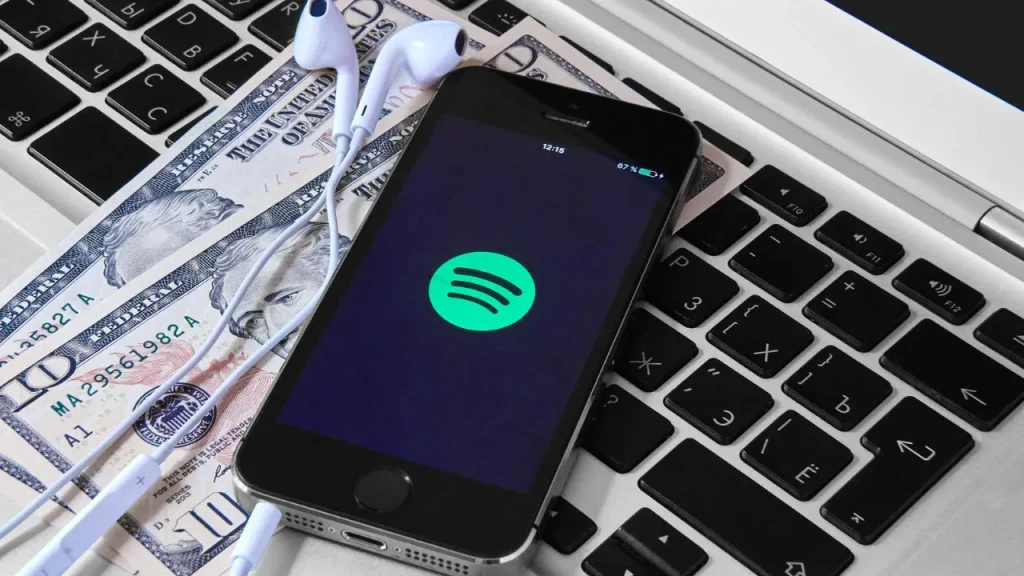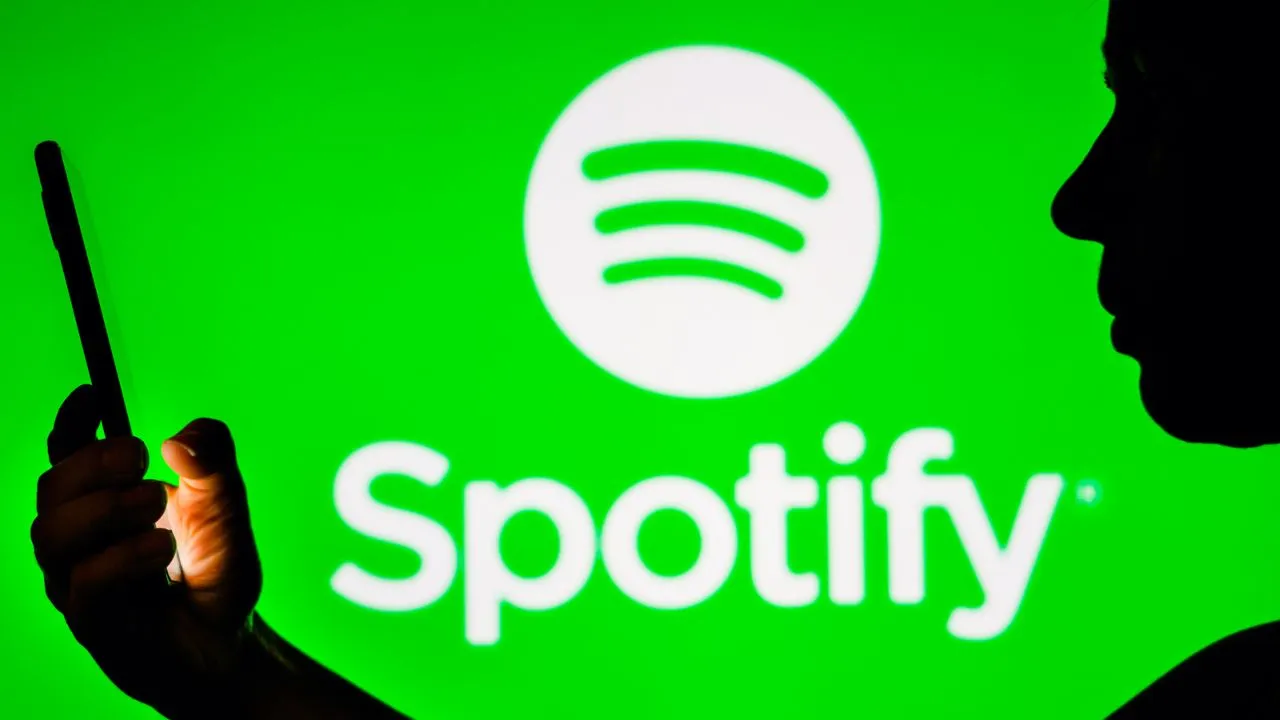The discography, as we knew it, she died in the early 1910s. Let's accept it. The phonographic media market has inevitably given way to streaming (the big slice of the pie) and digital stores. And in this revolution only one giant emerged: Spotify. If previously album sales were counted, today Spotify plays are countedand yes: these streams can be falsified. Even in a very simple way.
The gag of the Dog Engineer, Fabio De Luigi's iconic character at the time of Mai Dire Gol, comes in handy. How many streams do you have? Hundred? One thousand? A thousand thousand? Thinking back to the staggering figures of certain artists, those very words come to mind. Yet it is inevitable. Listening on streaming platforms it means not only economic returns (albeit small), but also increase in perceived value and even official certifications. Yes, because the gold records, awarded by FIMIthey also take streaming listeners into consideration.
An entire structure, this of the new discography, which collapses if we clear the fact that ratings on Spotify (but also elsewhere) can be distorted. As? Through the streaming farms.
What are streaming farms?
The term streaming farms comes from the concept of click farms. The latter generally indicates buildings – of variable size – where multiple connected devices repeatedly perform the same actions. The process is similar to those of automated bots, with the difference that in this case the actions are repeated using real accounts, created by natural persons.
Imagine a room full of smartphones, each connected to a different Spotify account (all you need is an email to have one), which they play the same song in a loop. The phenomenon of click farms is more widespread than you might think, and goes far beyond the music industry.
Is it over now having streaming farms yet it’s already out on global spotify ijbol🤪🤣pic.twitter.com/mKe6VYQXmv
— Supremo🧛♂️☀️(wait for your love) (@supre_moonlight) April 9, 2024
Click farms can be used for (re)direct a large amount of traffic to a websitegenerating enormous advertising revenue (if we consider that many sites, such as those related to publishing, earn from clicks).
This system, if corrupted by click farms, can be extremely profitable, given that numerous services offer packages of thousands of clicks for just a few euros. It goes without saying that it is one fraudulent practiceespecially in the musical field, where the consequences for artists and labels can be disastrous. And later in this article we will see why.
Why are Spotify listeners (false or real) at the center of contemporary discography?
As anticipated in the introductory section, Spotify has become the new point of reference for contemporary discography. The Swedish giant has capitalized on the concept as best as possible playlist (the real engine of the streaming record market) and its very powerful algorithm. But that is not all.
Spotifyunlike services like Apple Music and Amazon Music, it is essentially free. This means that anyone with an email address (and any of us can create hundreds of different emails for free) can listen the entire Spotify catalog for free. Sure, there's some advertising every now and then, but nothing too limiting.

It therefore begs the question: How does the music industry profit from Spotify? The trivial answer would be “well it doesn't”. After all streaming revenues are infinitesimally lower than the now defunct physical marketand the cake must be divided into several parts (publishers, artists, labels and distributors depending on the stipulated contract).
Recently Tony Visconti, David Bowie's historic producer, declared that “with 12 million streams I could barely afford dinner for two people”. And if we mentioned Tony Visconti, why not mention Gigi D'Alessio? In a joke on the Muschio Selvaggio podcast, the Neapolitan singer stated that “before with a million records sold you bought a house, now with a million streams you buy a coffee”.
In short, the problem of streaming remuneration deserves a separate article, but suffice it to say that the pie to be divided has fewer slices than those who are actually hungry. And the majority have to settle for crumbs.
To return to the original question, Spotify pays artists (and other entitled parties) from a fund fed by advertising revenue and paid subscriptions (Spotify Premium). The more plays an artist has, the more Spotify pays them. It therefore goes without saying that distorting ratings is equivalent to defrauding the entire system which – at least on paper – would aim to reward meritocracy.
It is also good to understand another fundamental concept: Spotify only counts plays if at least 30 seconds of a song are played. This is why repeatedly pressing the Play button is useless for stream counting purposes.
Is buying plays on Spotify convenient?
Wanting to bypass the moral and legal issue, we take on the role of a cynical young artist who aspires to success and money. So let's ask ourselves the question: Is buying fake plays on Spotify convenient?
In addition to stealing from the artists' fund, those who buy ratings are also pumping their own value perceived. Think about it: is an influencer with millions of followers more or less popular than one with 100 followers? Likewise, having to choose between listening to a song with 10 streams and one with 150,000, you will probably opt for the second.
The answer is therefore the same as for all illicit practices: yes, it can be beneficial, but only until you get caught. And if you get caught the consequences can be disastrous.
Fake streams: the alarming numbers of the phenomenon
Despite the enormous machinery of streaming farms, the entire industry is trying to protect itself, to preserve the crumbs of the famous cake that is increasingly nibbled left and right. In recent years, Spotify, like Apple Music, has implemented practices to detect suspicious listening peaks. Unusual activities are then monitored to assess any bad practices. And let's remember, since money is at stake, these unfair practices can be categorized as scam.
Just last month, in March 2024, A 54-year-old Danish man was sentenced to 18 months in prison for using several fake accounts to boost his ratings on Spotify and Apple Music. The man, between 2013 and 2019, managed to generate royalty income of DKK 2 million (approximately €270,000). According to the Wired article that reported the story, this would be just the tip of the iceberg. In fact, a study by the National Center of French Music reveals that in 2021 alone, between 1 and 3 billion fake streams were recorded on the main music platforms.
A Rolling Stone investigation published in 2019 suggests that fake ratings cost artists approximately 300 million dollars per year. And in five years, especially in the age of Artificial Intelligence, these numbers could have increased exponentially. Moreover, another investigation, published by Complex, states that 10% of global music streaming would be distorted by the streaming fams phenomenon.
What happens when Spotify detects distorted listening? The location of the platform
As mentioned in the previous paragraph, the main streaming platforms monitor any irregular listening. Ascertaining the crime is not always easy (after all, a user cannot be blamed just because he decides to listen to the same song on loop for hours). However, if Spotify were to establish that the artist – through streaming farms – is deceptively deriving a profit, it could arbitrarily decide to remove the song from your catalog, ban the artist in question and refuse to distribute future releases. Not only that, the consequences – since it is a scam – could lead to legal proceedings.
The Swedish streaming giant recently commented publicly on the problem, and through its support page writes:
“Third-party promotional services that advertise streams in exchange for payment are in violation of our terms and conditions and using them may result in your music being removed from Spotify. Any services that claim to offer guaranteed placement in Spotify playlists in exchange for money are in violation of our terms and conditions, and should not be used”
In the same blog post Spotify also explained the consequences of these actions:
“When we identify confirmed cases of artificial streaming or ratings manipulation, we take action that may include withholding associated royalties, correcting public streaming numbers, and measures to ensure the popularity of the artist or song is accurately reflected in our rankings. In some cases, we may remove data-confirmed artificial streams before the Spotify for Artists dashboard updates; in other cases, you may continue to see artificial streaming spikes in your Spotify for Artists data, even though associated royalties may be withheld. Spotify also reserves the right to remove manipulated content from the platform in the event of repeated or obvious artificial streaming.”
The platform, in addition to…
















Leave a Reply
View Comments